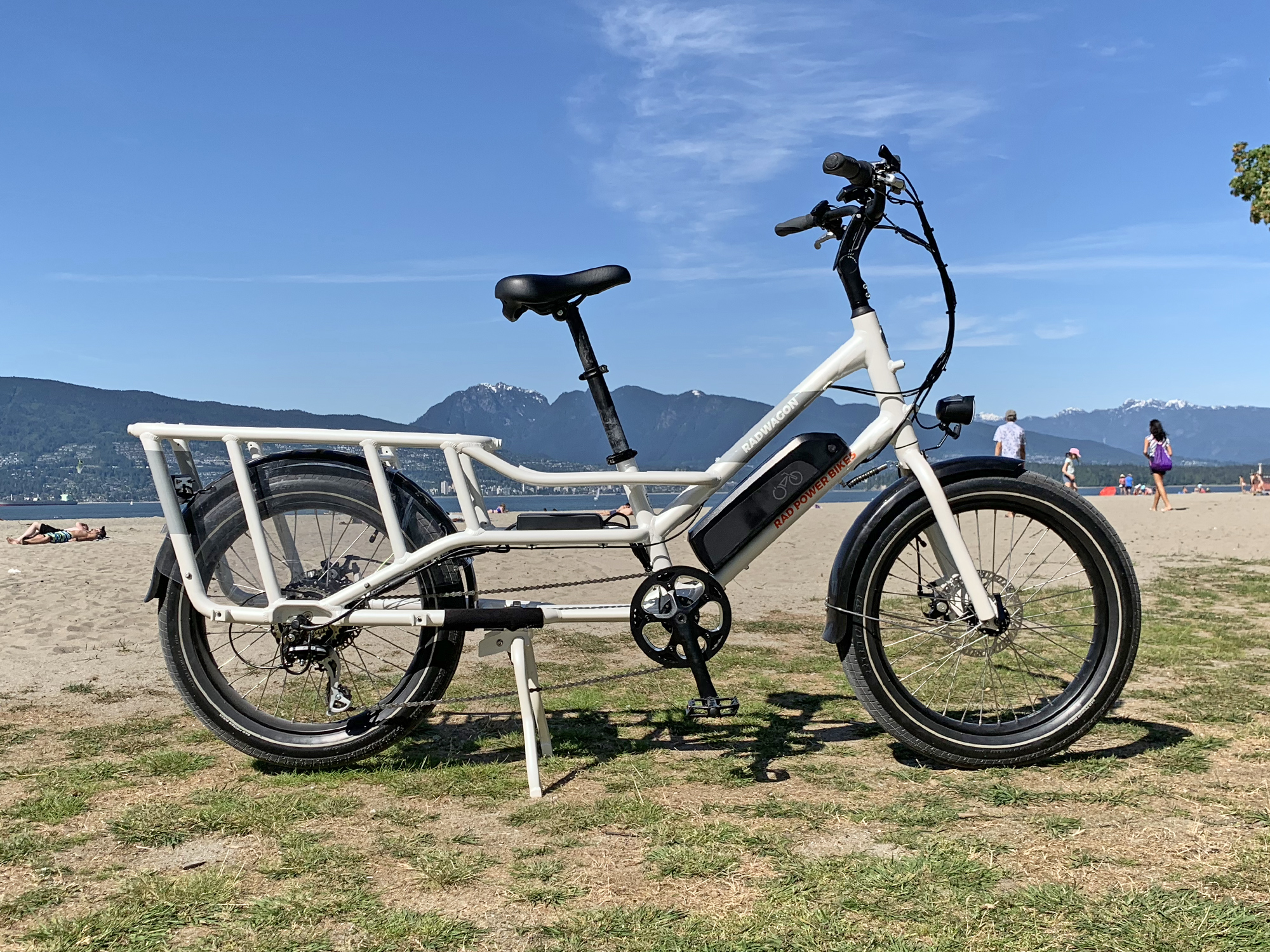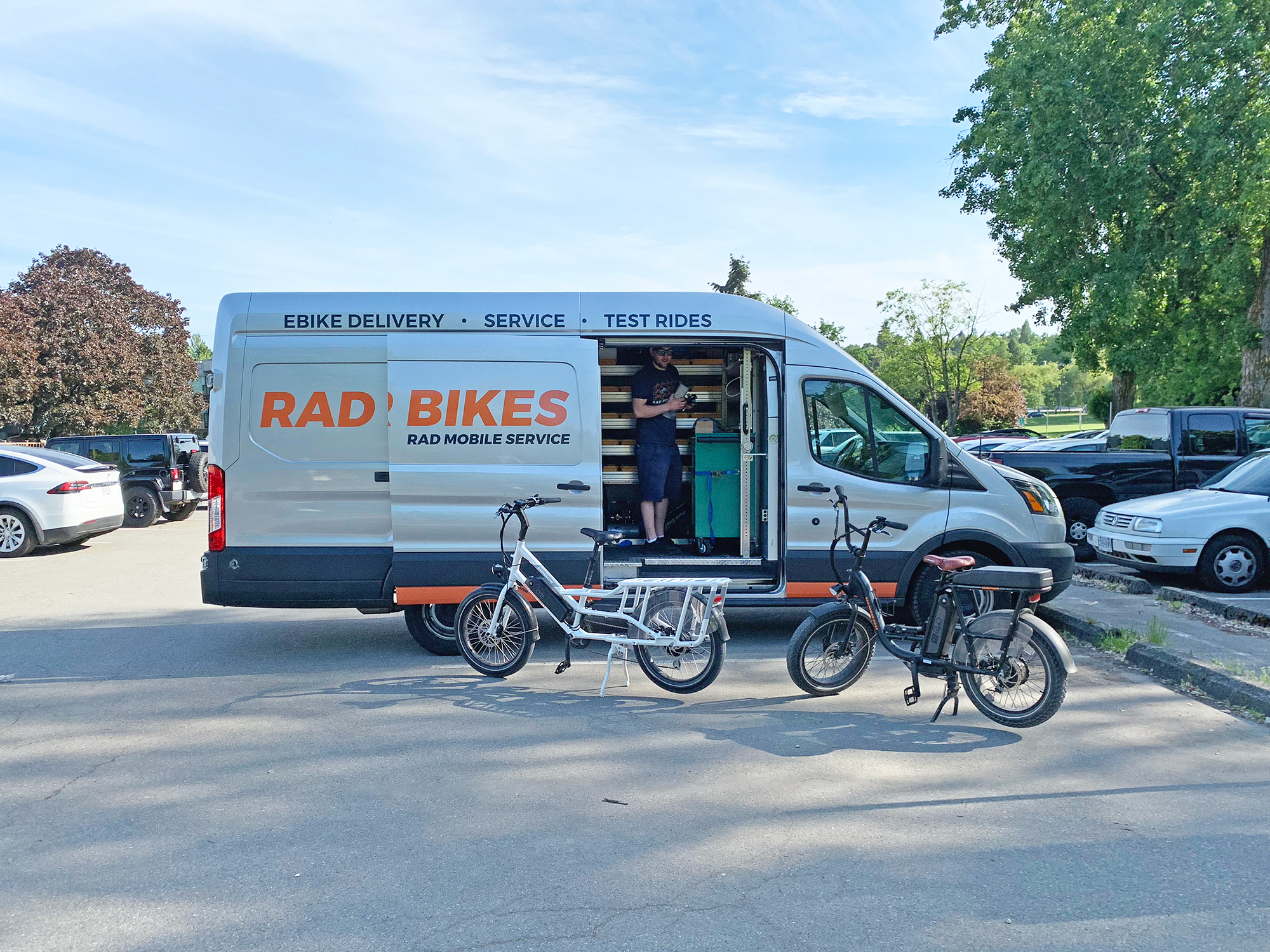

The Tektro mechanical disc brakes use 180mm rotors and stop the hefty bike with ease I never felt myself wanting for hydraulics during testing. There’s an 11-34t freewheel instead of a cassette-there’s no room for a freehub body next to that big hub motor-and the 34t climbing gear is handy for steep hills. The RadWagon comes with a 1x7 Shimano Altus drivetrain.

The jump to the climbing gear is dramatic but we’re glad it’s there. In other words, don’t trust the battery indicator on undulating terrain. But when I crested the hill and began descending, I got my three bars back. Accordingly, I switched to the lowest pedal-assist level to make sure I wouldn’t have to pedal the 73-pound bike over the hill by myself. For instance, climbing a half-mile hill on medium assist, I went from three bars to one, and then the display unit told me the battery would soon be dead.

The battery indicator is annoying: Rather than just telling you how much charge remains in the battery, it estimates how much charge you might have if you continue using a certain level of assist.

I reckon you’d get more than 40 if your route is mostly flat. I averaged around 35 miles per charge, but my cumulative home-work-home-work-home-work route included more than 2,000 feet of climbing. The range from the 48-volt battery largely depends on terrain. That said, reviewers from other outlets found the system jarring compared to riding a pushbike, so you might not enjoy it as much if you prefer your e-assist to feel more like regular pedaling. I think this behavior makes the RadWagon easier to ride than a mid-drive e-cargo bike because you don’t have to pedal very hard to get a full effort from the motor. Power delivery isn’t as fluid as it is on torque-sensing systems, but the cadence-sensing design gives you full power from easy, fast pedaling. A 12-magnet cadence sensor on the drive side of the bottom bracket picks up your pedaling input and doles out e-assist accordingly. Unlike most e-cargo bikes, the RadWagon gives you the option to use either one of five pedal-assist modes or a throttle on the right side of the handlebar. The cadence sensor, seen inside the chainring, gives you more e-assist as you pedal faster.


 0 kommentar(er)
0 kommentar(er)
